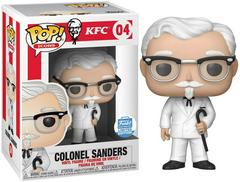
Introduction
Colonel Harland Sanders, the iconic founder of Kentucky Fried Chicken (KFC), remains a pivotal figure in the fast food industry. Recognized for his white suit and black string tie, Sanders’ legacy goes beyond mere marketing. His journey from a roadside diner to establishing a global franchise has not only shaped KFC but also the culinary landscape of North America and beyond. Understanding Sanders’ impact is crucial as it highlights the intersection of entrepreneurship, branding, and American culture.
The Early Years
Born on September 9, 1890, in Henryville, Indiana, Sanders faced a humble upbringing characterized by hardship. After the death of his father, his mother worked multiple jobs to support her children. This dynamic instilled in Sanders a strong work ethic. He ventured into various jobs, including a fireman and a soldier, before dedicating himself to the food industry.
The Birth of KFC
In 1930, Sanders opened a service station in Corbin, Kentucky, where he began serving meals to travelers. His fried chicken quickly gained popularity, leading him to establish a proper restaurant. By the 1950s, Sanders developed his secret blend of 11 herbs and spices, a recipe that would become the cornerstone of his success. In 1952, he began franchising KFC, laying the groundwork for an empire. Today, KFC boasts over 24,000 locations across 145 countries, solidifying Sanders’ recipe as a global phenomenon.
Sanders as a Brand Icon
Sanders’ story transcends beyond fried chicken; it illustrates the power of personal branding. His image was based on authenticity and a compelling personal narrative. Even after selling the company for $2 million in 1964, Sanders remained involved, serving as a brand ambassador. His unique persona helped cultivate a loyal customer base, making KFC not just a restaurant but a trusted dining choice for millions.
Conclusion
Colonel Sanders passed away on December 16, 1980, but his influence continues to resonate today. The values of dedication, innovation, and quality he espoused are deeply ingrained in KFC’s operations. As the fast food industry evolves, Sanders’ legacy serves as a reminder of the importance of storytelling in business. Understanding his contributions provides insight into not just a franchise’s success, but also the cultural phenomena surrounding food in America and globally. As KFC continues to adapt to changing tastes, the essence of Colonel Sanders remains a guiding force in this ever-evolving landscape.



